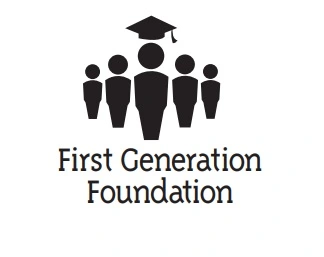Access to higher education has long been a significant challenge for first-generation students—those who are the first in their families to attend college. These students often face unique barriers, such as limited financial resources, lack of familial guidance on navigating the college admissions process, and a general unfamiliarity with higher education. Recognizing these challenges, numerous organizations, institutions, and governments have created scholarships specifically tailored to support first-generation students. These scholarships provide not only financial aid but also serve as a gateway to a better future, empowering students to break the cycle of educational inequity.

Why First-Generation Scholarships Matter
First-generation students often come from low-income families or underrepresented communities. While they possess the motivation and potential to succeed academically, financial obstacles can hinder their ability to pursue a college education. Scholarships designed for these students help ease the burden of tuition, living expenses, and other educational costs, making higher education more accessible.
These scholarships also acknowledge the resilience and determination it takes for first-generation students to overcome social and economic barriers. By supporting these students, scholarships create opportunities for upward mobility, contribute to diversifying college campuses, and foster a more equitable society.
Types of Scholarships Available
There are a variety of scholarships available for first-generation students, ranging from need-based awards to those recognizing academic excellence, leadership, or community involvement. Here are a few common types:
- Institution-Specific Scholarships: Many colleges and universities offer scholarships specifically for first-generation students as part of their commitment to inclusivity. For example, the University of California system provides scholarships through programs like the Blue and Gold Opportunity Plan, which helps first-generation and low-income students cover tuition costs.
- Nonprofit and Corporate Scholarships: Several nonprofit organizations and corporations offer scholarships to support first-generation students. Some examples include:
- The Gates Scholarship: A highly selective scholarship that covers the full cost of attendance, including tuition, room and board, books, and other expenses for outstanding minority students who are also first-generation college students.
- The Coca-Cola First Generation Scholarship: A scholarship that provides financial support to first-generation students with demonstrated leadership and academic potential.
- GE-Reagan Foundation Scholarship Program: A program that offers scholarships to students who demonstrate leadership, integrity, and citizenship, with many recipients being first-generation students.
- State and Federal Scholarships: Some states offer financial aid programs specifically for first-generation students. For instance, New York’s Higher Education Opportunity Program (HEOP) provides grants and support services to first-generation college students attending private institutions within the state. Federal programs, like the Federal Pell Grant, can also be crucial for low-income first-generation students.
How to Apply for First-Generation Scholarships
Applying for scholarships requires planning, research, and persistence. Here are some steps first-generation students should follow:
- Start Early: Scholarship deadlines vary, so it’s important to begin researching options as early as possible. Make a list of scholarships that match your qualifications and mark deadlines on a calendar.
- Complete the FAFSA: The Free Application for Federal Student Aid (FAFSA) is the starting point for most need-based scholarships. By filling out the FAFSA, students can qualify for federal aid as well as institutional scholarships.
- Leverage Local Resources: Many community organizations, high schools, and local businesses offer scholarships for first-generation students. Check with your school’s guidance counselor, local nonprofits, or religious organizations for opportunities.
- Write a Compelling Personal Statement: Many scholarships require an essay or personal statement. This is a chance for students to share their story, including the challenges they’ve overcome and their aspirations. First-generation students can highlight their unique experiences, such as how being the first in their family to attend college motivates them to succeed.
- Seek Letters of Recommendation: Letters of recommendation from teachers, counselors, or mentors can strengthen a scholarship application. Choose individuals who can speak to your academic abilities, leadership, and character.
Support Beyond Scholarships
In addition to financial aid, many scholarship programs for first-generation students provide mentorship, networking opportunities, and academic support. These resources are invaluable in helping students navigate the complexities of college life, from course selection to career preparation.
For example, the Posse Foundation Scholarship not only provides financial support but also builds small groups of students (“posses”) who attend college together, offering peer support and leadership training. Similarly, the Jack Kent Cooke Foundation offers scholarships with access to a vast alumni network and academic counseling.
Conclusion
Scholarships for first-generation students are more than just financial aid; they are a lifeline to opportunity. By alleviating the financial burden of college, these scholarships enable students to focus on their education, build successful careers, and contribute positively to society. For many first-generation students, these scholarships are the key to unlocking their full potential and creating a legacy of higher education in their families.
By investing in first-generation students, we invest in the future of education, innovation, and community development. The support these scholarships provide extends far beyond the classroom, empowering students to shape their own futures and open doors for the generations to come.